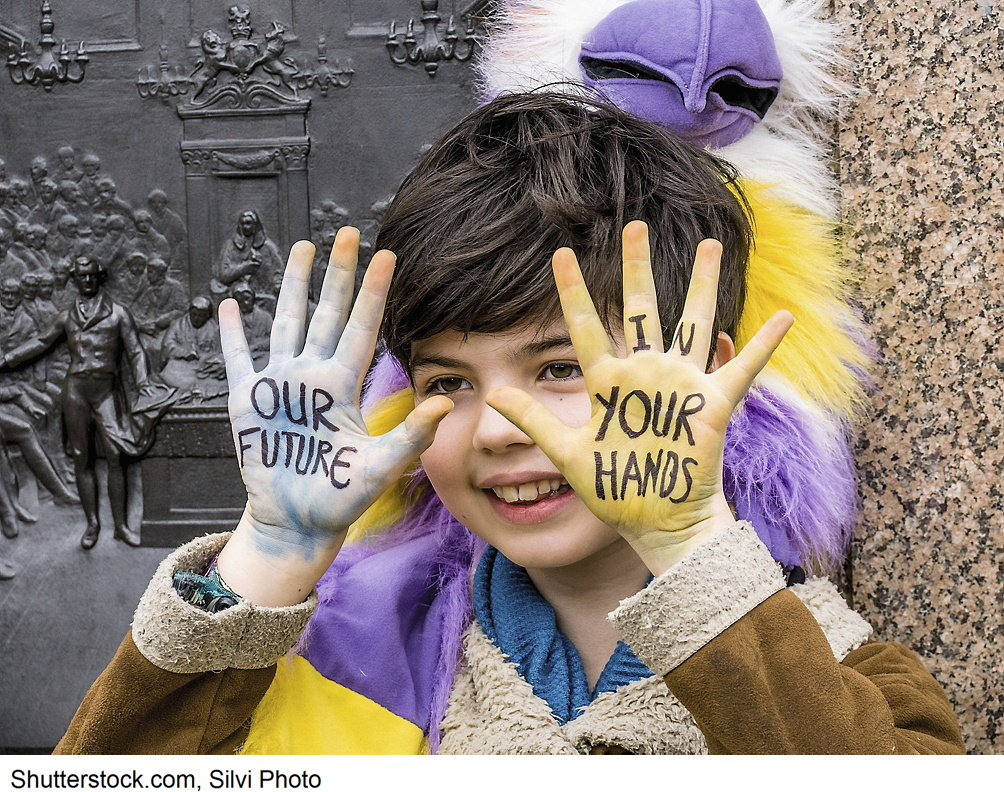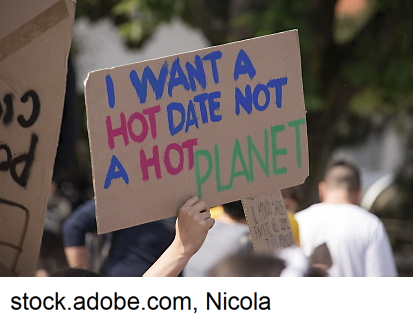2 Youth activists
-
2 Youth activists
Hello again ! Why do young people protest?

In this lesson you are going to:
- learn about different youth activists
- prepare a short presentation of one of the youth activists
- talk about social and community engagement
If you need help, you can go to the class forum and ask your question there. You can also answer questions from your classmates.
-
1 Young protesters
Look at Jason's quote and the picture of his protest poster. Do you agree? Why or why not? Explain your ideas.

"It's a shame that teenagers as young as me have to take to the streets to fight against climate change and other issues. We're not responsible for these problems, but they will be our future. Why do I have to protest? Aren't adults supposed to know what's right or wrong? My grandma always says that she doesn't understand that such young people - school students - organize protests, but my answer is always: What else can we do?"
-
2 Youth activists
a) Look at the list Sophie and Bernd published in their blog. It shows 12 youth activists they find inspiring and what those activists are fighting for or against.
- Do you know any of the activists? Tell your class about them.
- Which other activists do you know? Share with your class.
-
3 What can we do?
a) Erin is active in her community and wants to help the planet. Watch Erin's Vlog episode. What can the government, society and we as individuals do to help the environment? Sum up the ideas these people talk about. Take notes.
-
✪ ✪ ✪ A speech at the United Nations
a) Go to the website of the United Nations Audiovisual Library and watch the video from 01:21:30 – 01:30:50. It is a speech by Xiuhtezcatl Roske-Martinez in 2015. Sum up important points he makes in his speech.
b) Answer the following questions. Take notes:
- When and where is the speech delivered?
- Who is the speaker?
- Who is watching the speech?
- What theme has the speech got?
- What kind of language does the speaker use? (emotional, graphic, powerful ...)
- Is there humor, irony or satire or has the speech got a serious topic?
c) Write an analysis of the speech and include the following information:- Introduction: Name of the speaker, position/job, when and where the speech was delivered, topic of the speech, purpose of the speech
- Main body: summary of the speaker's main arguments, examples of stylistic devices (+ explain why they were used)
- Conclusion: your conclusion, your opinion if the speaker might reach his goals with the speech
-
📖 More words for our dictionary
Look up definitions for one or two of words of the topic "Youth activists" and add them to our dictionary. You can work in groups.
-
IN Alternative
